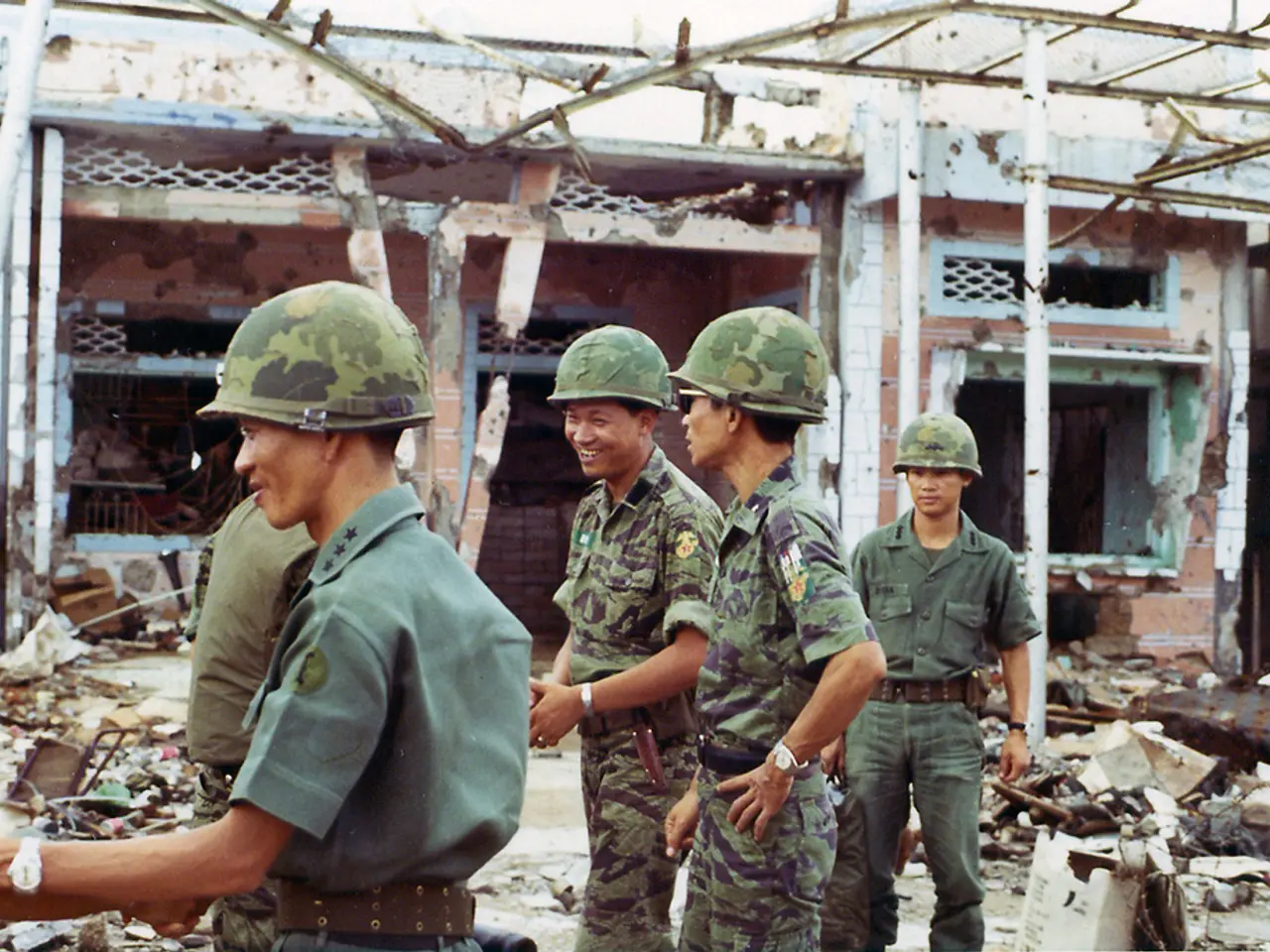Military readies to deploy numerous reserve soldiers in Israel, aiming to secure comprehensive control over Gaza region
In an unprecedented move, the Israeli government has announced plans to mobilize tens of thousands of reservists, marking the start of a large-scale military operation aimed at taking full control of the Gaza Strip, beginning with Gaza City [1]. This operation, which was approved by the Israeli security cabinet on August 8, is intended to disarm Hamas, demilitarize Gaza, and establish Israeli security control even after the war, while eventually handing governance to an unspecified Arab force [1].
The Israeli Chief of General Staff, Eyal Zamir, has expressed concerns about the plan, opposing the decision of the security cabinet and urging the construction of hospitals in Gaza due to the lack of civilian infrastructure. Zamir warns that without humanitarian aid for approximately one million Gaza residents, the implementation of the plan could lead to catastrophic consequences and make the release of prisoners impossible [2].
Zamir further warns that if the operation proceeds, the release of hostages should be excluded from the goals of the war. Protesters, too, have demanded that the Israeli government stop the military operation and release hostages still held by Hamas militants [3].
The IDF is reportedly preparing for massive shelling and "occupation" of areas in Gaza, with part of the civilian population expected to be relocated to the south [4]. Over 100,000 people protested against the prime minister's new plan for full occupation of Gaza in Tel Aviv on Saturday evening, August 9 [5].
The international community has responded with strong condemnation. Foreign ministers of the UK, Australia, Germany, Italy, and New Zealand issued a joint statement condemning Israel's decision to take control of Gaza [6]. Around 20 Arab and Muslim countries, including Egypt, Saudi Arabia, and Turkey, have also condemned the move as a "flagrant violation of international law and an attempt to entrench illegal occupation in defiance of international law" [7].
The International Commission of Jurists (ICJ) and the United Nations High Commissioner for Human Rights have demanded an immediate halt to the military takeover, warning it will lead to severe humanitarian crises, including forced displacement, extensive civilian casualties, widespread destruction, and further war crimes [2][3][4].
The UN has emphasized that the occupation contravenes international law and a ruling by the International Court of Justice, urging Israel to instead focus on allowing unfettered humanitarian aid into Gaza and calling for an immediate ceasefire. The UN and ICJ also insist on the unconditional release of all hostages and detainees in connection with the conflict [2][3][4].
In summary, Israel’s plan entails a prolonged military offensive with significant humanitarian and legal consequences, while major international actors call for its immediate cessation to prevent further atrocities and promote a peaceful resolution [1][2][3][4].
References: 1. Israel Approves Plan to Take Control of Gaza 2. ICJ Urges Israel to Halt Military Takeover of Gaza 3. UN Calls for Immediate Ceasefire in Gaza 4. UN Demands Release of Hostages in Gaza Conflict 5. Protests Erupt in Tel Aviv Against Gaza Takeover Plan 6. Joint Statement by the Foreign Ministers of the UK, Australia, Germany, Italy, and New Zealand 7. Arab and Muslim Countries Condemn Israel's Decision to Take Control of Gaza
The Israeli Chief of General Staff, Eyal Zamir, has raised political concerns over the Israeli government's plan to take control of the Gaza Strip, urging the construction of hospitals and humanitarian aid for Gaza residents to prevent catastrophic consequences and impossible prisoner releases [2].
The international community, including the United Nations, foreign ministers from several countries, and the International Commission of Jurists, have criticized the political decision to take control of Gaza, warning of general-news issues such as humanitarian crises, forced displacement, civilian casualties, widespread destruction, and further war crimes [2][3][4][6].








